In his autobiography, “The Ragman’s Son,” Kirk Douglas revealed that he had once tried to forget that he was Jewish. Only later in his life and career did he begin to explore and embrace his Jewish identity, which became his life’s overarching theme. In a 2000 interview, Douglas explained that he had parted ways with Judaism as a poor kid growing up in Amsterdam, N.Y.
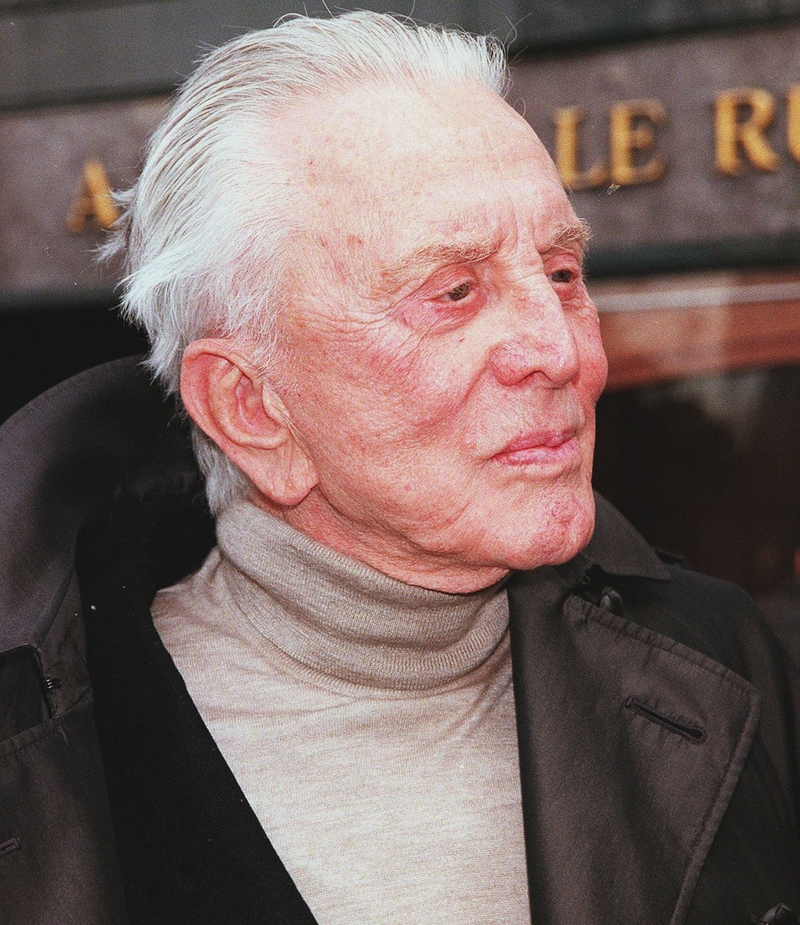
His rift with the faith began when the community collected money to send him to a yeshiva to become a rabbi. Douglas had other plans. He found the prospect of being a rabbi terrifying, and it took immense will and effort to break free from that expectation. Douglas eventually discovered that being Jewish encompassed much more than being a rabbi.
Kirk Douglas - Early Days
Kirk Douglas was born Issur Danielovitch in Amsterdam, New York, on December 9, 1916. His parents Bryna "Bertha" and Herschel "Harry" Danielovitch, were immigrants from Chavusy in the Russian Empire, now modern-day Belarus. Kirk was the fourth child of seven siblings and the only son in the family.

His paternal uncle had already immigrated to the US and changed his surname to Demsky. Upon arrival, the rest of the family adopted the new surname, and Kirk was known as Izzy Demsky for the early years of his life. Later, he decided to change his name legally to Kirk Douglas before joining the United States Navy.
The Life of a Ragman’s Son
Kirk had a tough childhood and would later share his harrowing early life experiences in his autobiography, “The Ragman’s Son.” Kirk's father, a horse trader in Russia, had no choice but to become a ragman when arriving in the US. He bought old rags, pieces of metal, and junk for a pittance and sold them for a meager profit.

Even in the poorest section of town, where all families struggled to make ends meet, the ragman was at the bottom of the social ladder. As for Kirk, he was just the ragman's son – a tag he had to learn to live with throughout his childhood.
He Had an Unstable Family Life
To add to the family's woes, Herschel had drinking issues and was known to have abused his family. With the little money they had, his father squandered on alcohol, leaving Kirk and his mother and sisters to deal with crippling poverty. These early days were immensely challenging, with the family enduring tremendous suffering and deprivation.
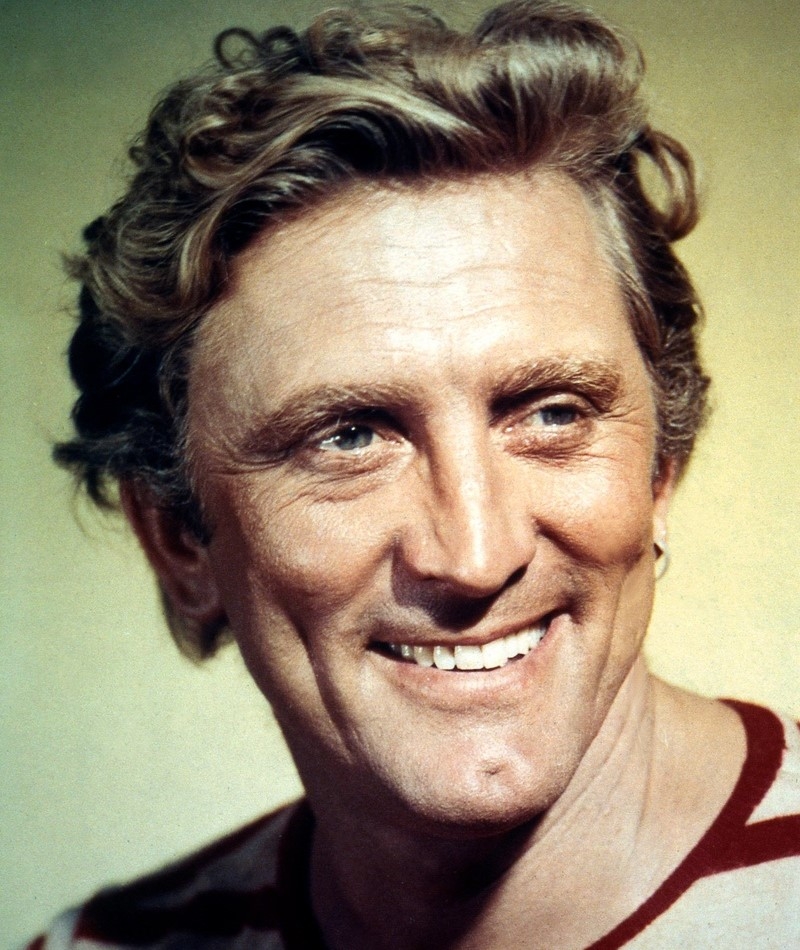
His family's immigrant background and his upbringing in a large Yiddish-speaking household would influence his life and career. Douglas would later write an autobiography, offering glimpses into his early struggles. His stories are a testament to the resilience that helped him become the Hollywood icon the world remembers him as today.
He Finds Refuge in Acting
Kirk Douglas was drawn to acting from a young age. Even as a kindergartner, he captivated an audience with his recital of "The Red Robin of Spring." This experience sparked a passion for performing that never waned. Growing up in poverty, Douglas had to work hard to help provide for his family.

He sold snacks to mill workers and delivered newspapers, among other odd jobs. Douglas also found it stifling to be part of a large family. He desperately felt the need to break free and forge his own path. Acting offered him creative release and hope for a better future. He participated in plays at Amsterdam High School, where he discovered a sense of purpose and direction on stage.
The Tenacious Kirk Douglas
After graduating in 1934, Kirk Douglas knew that he wanted to pursue acting professionally. He was determined to continue his education after high school, but finances were tight. Undeterred, he talked his way into the dean's office at St. Lawrence University and showed him a list of his high school honors. Impressed, the dean allowed him to enroll.

Despite financial difficulties, Kirk worked hard and graduated with a Bachelor's degree in 1939. To pay back a loan he received for tuition, he worked part-time as a gardener and a janitor. He was a standout athlete on the university's wrestling team, even wrestling in a carnival one summer to make extra money. Through wrestling, Kirk also developed a friendship with world-champion wrestler Lou Thesz.
He Earns a Scholarship and Also Falls in Love
Kirk Douglas's acting talents did not go unnoticed at the American Academy of Dramatic Arts in New York City. In recognition of his potential, he earned a special scholarship to further his studies. It was here that he met his future wife, Diana Dill, who was also a student at the academy. The two quickly hit it off and eventually tied the knot.
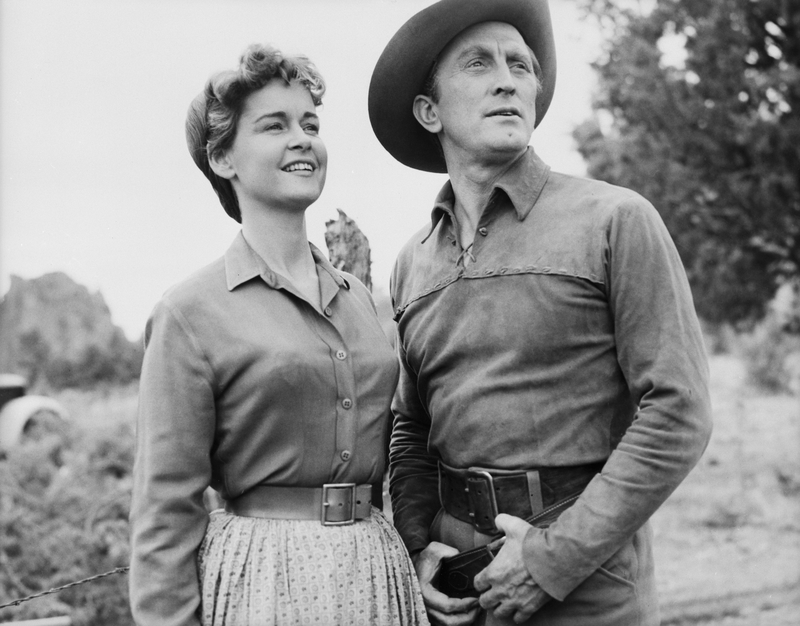
Another important figure in Douglas's life at the academy was his classmate, Betty Joan Perske, who later went by the name Lauren Bacall. The two had a brief romantic relationship, and Bacall would go on to play an instrumental role in launching his film career.
He Changes His Surname
Following America's entry into World War II, he legally changed his surname to Douglas and enlisted in the United States Navy in 1941. He worked as a communications officer in anti-submarine warfare serving aboard the USS PC-1139. In 1944, Douglas received an honorable discharge from the Navy after suffering injuries from a depth charge explosion that occurred prematurely.

Depth charges are explosive devices detonated at a specific depth to damage or destroy underwater targets. Despite his brief time in the military, Douglas remained a proud veteran for the rest of his life, and he was deeply grateful for the experiences and lessons he gained during his service.
Life After War
After completing his service in the Navy during World War II, Kirk Douglas returned home to New York City to pursue his passion for acting. He initially found work in radio, where he could hone his vocal skills in soap operas and commercials. Douglas also worked in theater, taking on the role of Richard Widmark in “Kiss and Tell,” which opened doors to other opportunities.
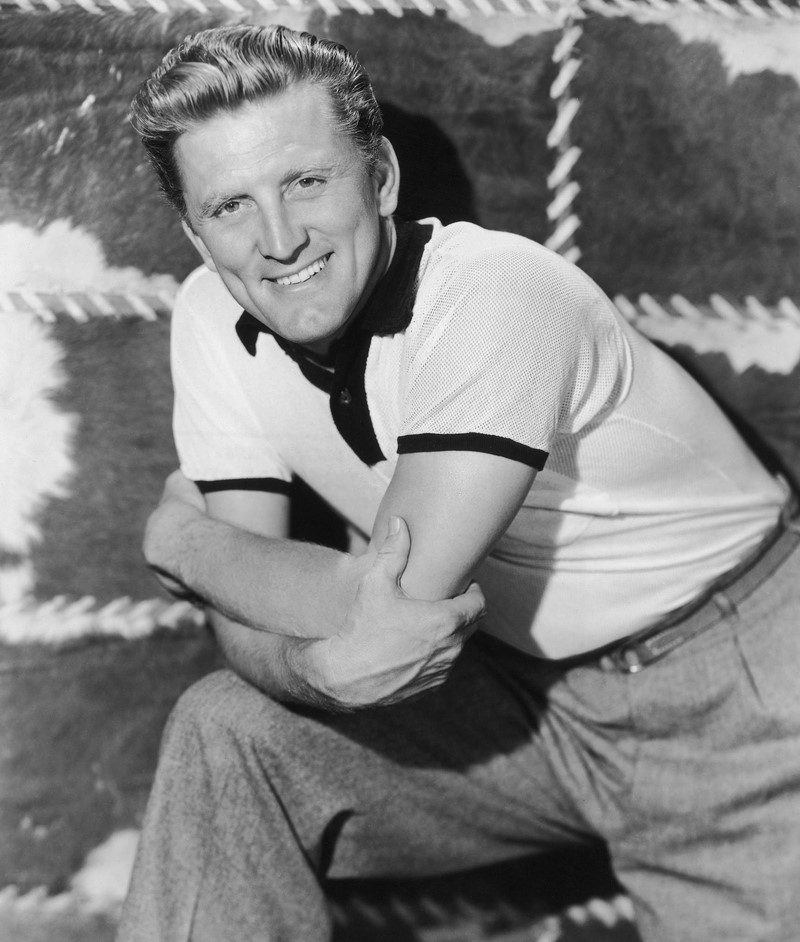
He recognized the value of his experience in radio, where he learned the importance of vocal expression for actors. He only wished that such opportunities were more accessible. His talents on stage earned him critical acclaim and helped pave the way for his eventual success in film.
Kirk and Diana Get Married
On November 2, 1943, Douglas tied the knot with his first wife, Diana Dill. The couple had two sons, Michael Douglas, who would later become an accomplished actor, and Joel Douglas, a successful producer. The good times didn't last, however. Their marriage ended in 1951, and the couple eventually divorced.
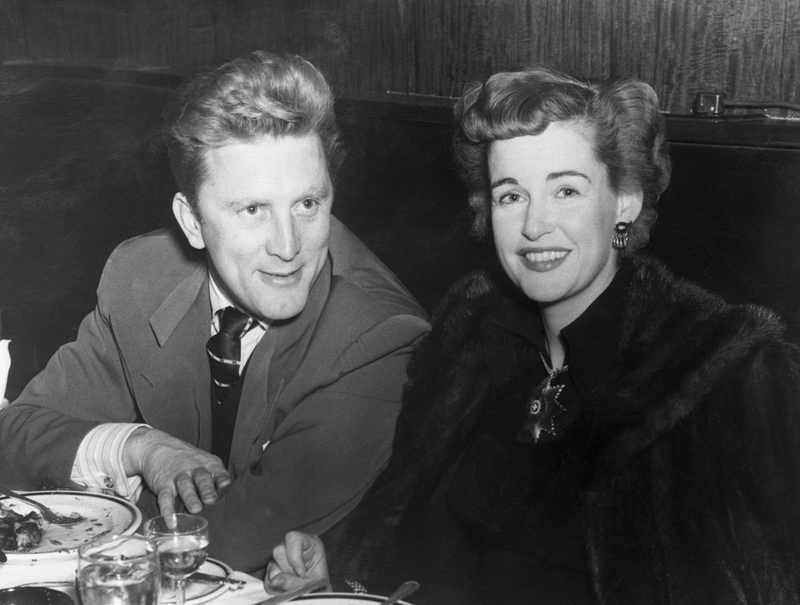
In his autobiography, "The Ragman's Son," Douglas also revealed that he was once engaged to the Italian actress Pier Angeli in the early 1950s. The couple met while working together on the sets of "The Story of Three Loves" (1953), and their romance blossomed on set. Their engagement did not lead to marriage, and the two went their separate ways.
His Debut Film Appearance
In his early days, Kirk Douglas had set his sights on being a stage actor. However, his friend Lauren Bacall played a crucial role in his shift toward film. Bacall recommended Douglas to producer Hal B. Wallis, who was on the lookout for new male talent. Wallis cast Douglas in his debut screen appearance in the film “The Strange Love of Martha Ivers” (1946) alongside Barbara Stanwyck.

Douglas played the character of a young, insecure man whose domineering wife controlled his life and who subsequently drowned his sorrows in alcohol. Film reviewers of the time noted that Douglas was already a natural on film despite it being his debut performance. It would also be the last time Douglas would play the role of a "weakling" on-screen.
He Proves His Versatility as an Actor
In 1947, Douglas landed a supporting role in the classic film noir thriller “Out of the Past” (also known as “Build My Gallows High” in the UK) alongside Robert Mitchum and Jane Greer. This was followed by his Broadway debut in 1949, playing a role in “Three Sisters,” which was produced by Katharine Cornell.

Douglas continued to make waves in the film industry the same year with his appearance in “I Walk Alone.” It was his first time working with Burt Lancaster, and it would not be the last. Douglas played a supporting role similar to his character in “Out of the Past,” establishing his reputation as a versatile actor capable of playing different roles.
A New Tough Guy in Tinseltown
Kirk Douglas’s reputation as the quintessential on-screen tough guy began in earnest with his portrayal of a selfish boxer in "Champion" (1949). Stanley Kramer offered him the role, and though it meant passing on a big-budget MGM film that would have paid him three times more, Douglas saw the film as a better opportunity to showcase his acting skills. His decision paid off, and Douglas delivered a memorable performance that film historians have described as "alarmingly authentic."

According to film historian Ray Didinger, Kirk Douglas knew that "Champion" was a risk but took on the challenge anyway. As we know, the results were outstanding, and Douglas' performance was impeccable. He also starred alongside Lauren Bacall in the 1950 film, "Young Man with a Horn," which brought him his first Academy Award nomination.
His Acting Philosophy
Following his success in "Champion," Kirk Douglas realized the need to increase his intensity, conquer his natural shyness, and choose more powerful and effective roles. He believed a certain degree of vanity was necessary to succeed as an actor and famously stated that he had no interest in being a "modest” actor.
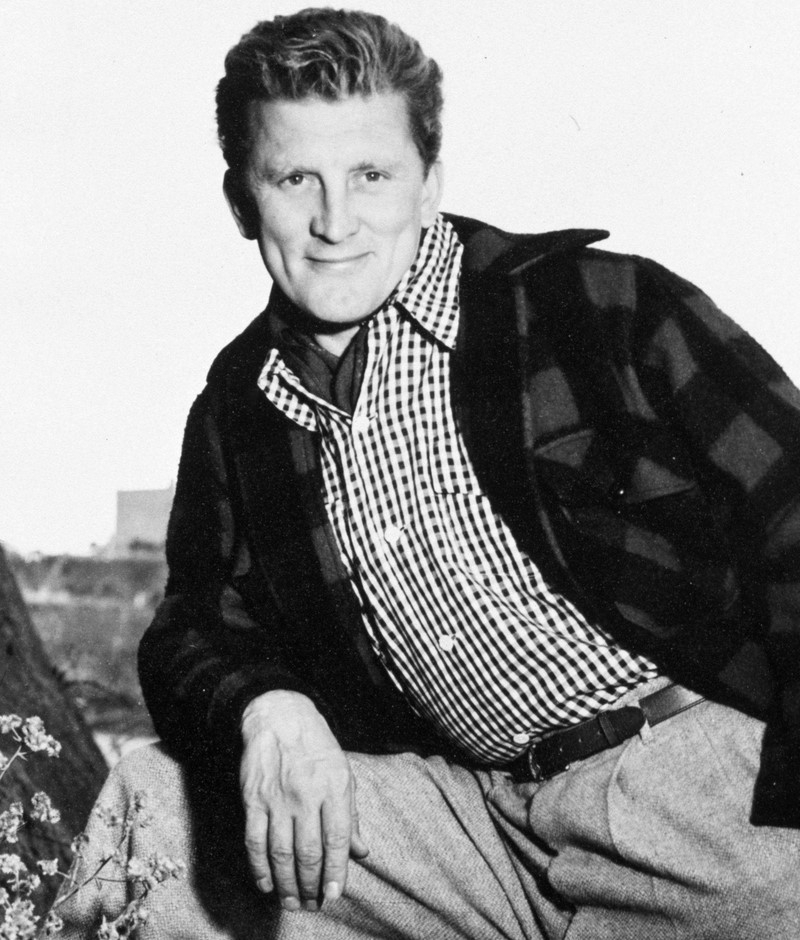
Douglas demonstrated his independence further by breaking his studio contracts to gain complete control over his projects. He soon formed Byrna Productions, a production company named after his mother. The company allowed him to have creative control over his films and to choose projects that were important to him.
The Young Man With a Horn
In the 1950 film "Young Man with a Horn," Douglas starred alongside legendary actress Lauren Bacall. The movie tells the story of a young musician's rise to fame and the struggle to maintain his integrity in the cutthroat music industry. The film, directed by Michael Curtiz, was adapted from Dorothy Baker's 1938 novel inspired by the life of jazz cornetist Bix Beiderbecke.

The film was a hit with audiences and critics, garnering six Academy Award nominations, including one for Douglas. The early success established Douglas's reputation as a talented actor and set him on a path to becoming one of Hollywood's most respected and enduring stars.
A Star Rises
Throughout the 1950s and 1960s, Kirk Douglas dominated the box office and shared the screen with some of the most talented actresses of his time. He ventured into the Western genre, portraying a frontier peace officer in his first Western, “Along the Great Divide” (1951). The actor quickly developed a knack for riding horses and playing gunslingers, appearing in many Westerns soon after.

Among them, "Lonely Are the Brave" (1962), in which he played a cowboy striving to live by his own code, remained his personal favorite. The film, written by Dalton Trumbo and highly regarded by critics, performed poorly at the box office due to poor marketing and distribution. Still, Douglas remained undeterred through setbacks, continuing to choose roles that pushed him to the limit.
A Film Too Close to Home
In 1951, Kirk Douglas took on the role of a newspaper reporter searching for a big scoop in Billy Wilder's controversial film, “Ace in the Hole.” The film's story, which delves into corruption, mob psychology, and the free press, was deemed ruthless and cynical by some reviewers, causing US audiences to stay away.

Douglas speculated that the film might have hit too close to home; however, the film won the Best Foreign Film award at the Venice Film Festival, and in recent years, it has gained more recognition, making it onto several Top 500 Films lists. As the star, Douglas' intense and captivating performance was instrumental in helping drive the story.
He Takes His Roles Seriously
In 1951, Douglas graced the silver screen in the critically acclaimed movie, “Detective Story,” which earned four Academy Award nominations, including a nod to Lee Grant for her debut performance. According to Grant, Douglas was nothing short of "dazzling" on and off camera, and she said he had an arresting presence.

To immerse himself in the role, Douglas spent several days with the New York Police Department and observed real-life interrogations. His dedication did not go unnoticed. Reviewers were all praises, with one commending his "forceful and aggressive" depiction of the detective. Kirk was applauded worldwide for his performance and for showcasing his versatility in acting.
As the Bad Guy You Love to Hate
In the 1952 film "The Bad and the Beautiful," Kirk Douglas delivered a powerful, Oscar-nominated performance as Jonathan Shields, a ruthless and hard-nosed film producer who stops at nothing to achieve his ambitions. Shields is relentlessly determined to make great movies, using anyone and everyone around him to achieve his ultimate goal.
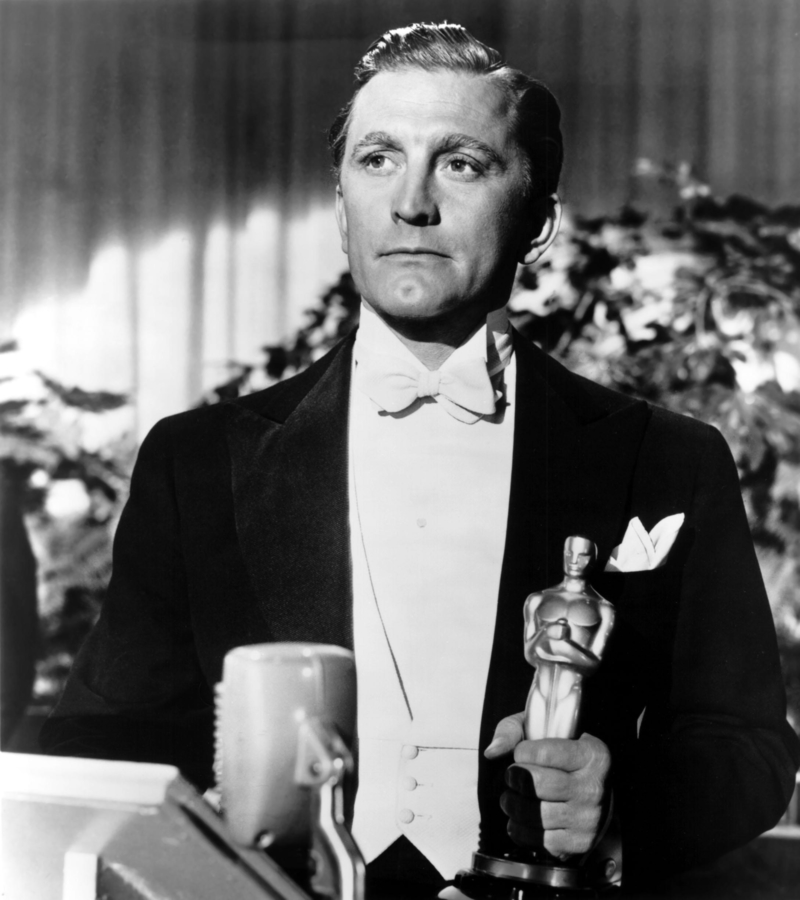
Despite the odds, he turns his surname into a trademark - creating stars out of people whom the film industry casts aside. Douglas imbued the character with a manic intensity and a pathological desire to succeed. The actor seamlessly portrayed Shield's charming and ruthless sides, making him both a captivating and complex figure.
He Finds Love Again
Kirk Douglas’ acting career brought him not just fame and fortune - it led him to his one true love and second wife, Anne Budyens. Their love story began in France while Douglas was filming "Act of Love" in 1953, and Anne was vying for an assistant's job on set. The two fell madly in love and exchanged wedding vows on May 29, 1954.
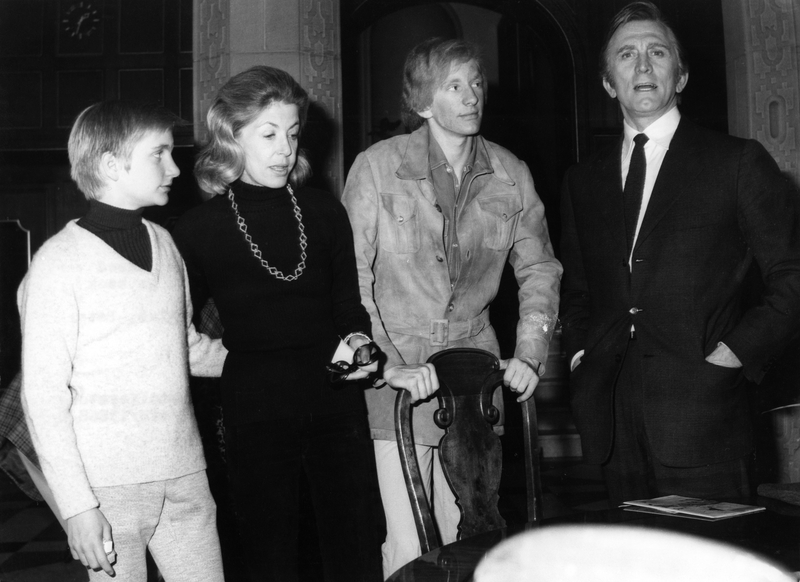
They remained committed to each other until Douglas' passing in 2020. They had two sons, Peter and Eric. Peter became a successful producer, while Eric pursued a career in acting. Eric's life was tragically cut short at 46 when he passed away on July 6, 2004.
Anne Was His Guardian Angel in More Ways Than One
Anne would become the most influential person in his life, often proving to be his guardian angel. In 1958, producer Michael Todd invited Douglas to fly on his private plane to New York. Douglas was thrilled, but Anne had a gut feeling that something wasn’t right. She begged him not to go.

They had a heated argument, but eventually, Douglas decided not to board the plane. Later, while driving and still not speaking to each other after the argument, they heard on the radio that the plane had crashed. Douglas realized he could have died on that plane and was grateful to Anne for saving his life.
The Success of 20000 Leagues Under the Sea
Kirk Douglas proved his versatility as an actor in the 1954 film "20,000 Leagues Under the Sea." While he was known for playing intense roles, Douglas showed he could also handle characters requiring a lighter, more comedic touch. In this adaptation of Jules Verne's classic novel, Douglas played a carefree sailor - a brilliant foil to the brooding and intense Captain Nemo, portrayed by James Mason.

The film was a major box-office hit and is considered one of Disney's most successful live-action movies. The movie received praise for its groundbreaking special effects, which brought the underwater world to life in a way never seen before on film.
He Forms a Production Company
In 1955, Kirk Douglas successfully launched his own film production company, Bryna Productions, after breaking contracts with Hal B. Wallis and Warner Bros. He began to produce and star in his films, starting with “The Indian Fighter.” But the true jewel in Byrna’s crown was "Paths of Glory" (1957) - a powerful anti-war film directed by Stanley Kubrick starring Douglas. Despite its commercial failure then, "Paths of Glory" is today regarded as an iconic anti-war film.
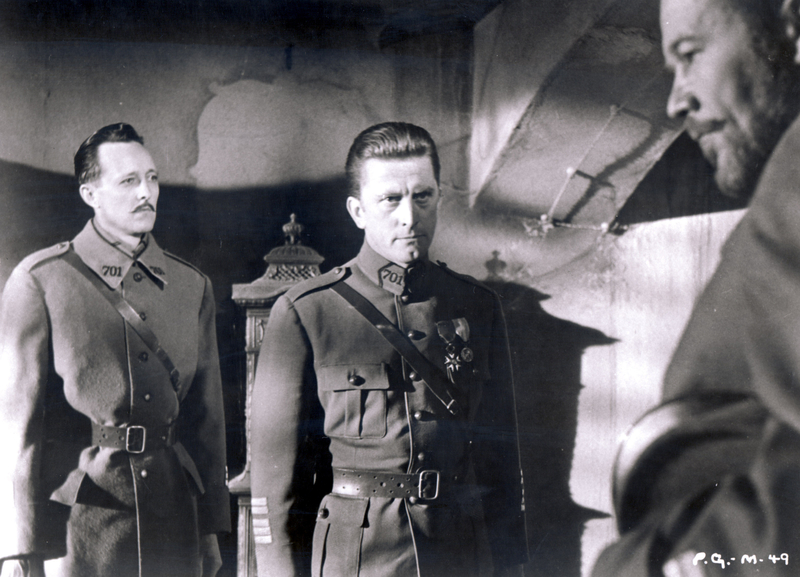
It tells the story of a compassionate World War I French officer who fights against a callous system that treats soldiers as pawns. Kubrick depicts a system where senior officers are vain and self-serving, using missions as obedience tests. Kirk, who spoke French fluently, delivered one of his most compelling performances as the officer trying to save three soldiers from execution.
He Delivers a Masterful Performance in Seven Days of May
Through Byrna productions, Kirk Douglas also starred and produced in “Seven Days of May” (1964). The film's plot explores the possibility of extremists attempting to overthrow the government. Burt Lancaster gave a powerful performance as Gen. James M. Scott, who seeks to protect the country from the perceived dangers of a nuclear pact with Russia.

Playing his loyal aide, Kirk Douglas becomes suspicious of Scott's plan and goes to the President with vital information to verify in just seven days. Douglas' portrayal of the character was masterful - a calm and collected officer loyal to his superior until he has reason to doubt him.
The Time He Played Vincent van Gogh to Perfection
In “Lust for Life” (1956), Kirk Douglas delivered an exceptional performance as Vincent van Gogh, a tortured artist seeking solace through his work. The film was directed by Vincente Minnelli and shot primarily on location in France. Douglas was impeccable as van Gogh, displaying a profound ability to convey the artist’s inner turmoil.

Many critics also appreciated how Douglas captured the physicality and emotion of painting as a process. He won a Golden Globe Award for the role, while his co-star Anthony Quinn won the Academy Award for Best Supporting Actor for his portrayal of Paul Gauguin. “Lust for Life” is still regarded as one of the finest cinematic portrayals of artists and their creative processes.
Lancaster and Douglas: A Partnership Through the Ages
Kirk Douglas and Burt Lancaster teamed up for several films over four decades. Among them was “Gunfight at the O.K. Corral” (1957), written by novelist Leon Uris and directed by John Sturges. The story is based on the legendary figure Wyatt Earp, played by Burt Lancaster, and his friend, Doc Holliday, played by Kirk Douglas, who suffers a severe illness.
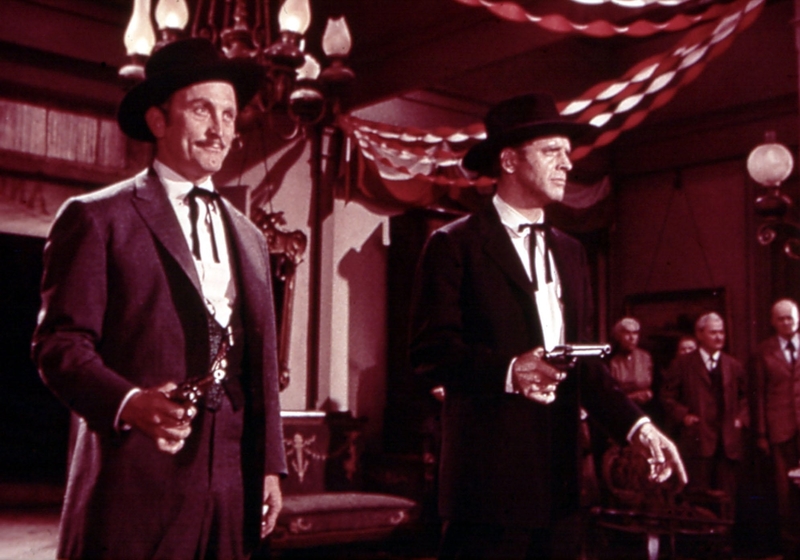
The plot follows their battles against the villainous Clanton gang but also explores the personal conflicts each man faces with women, each other, and their destiny. Lancaster delivered a standout performance as the melancholic Earp, while Douglas shone as the ailing Holliday. The film's depth and complexity make it not only an action-packed adventure but a fascinating exploration of the complex relationships between the main characters.
Spartacus, a Hollywood Classic Is Born
In 1960, Douglas delivered a career-defining performance as Spartacus, the Thracian gladiator slave rebel, in the epic film “Spartacus.” The all-star cast, combined with Douglas as executive producer, contributed to the movie's hefty $12 million production cost, making it one of the most expensive films of its time. The movie was praised all over the world for its powerful performances and theme.
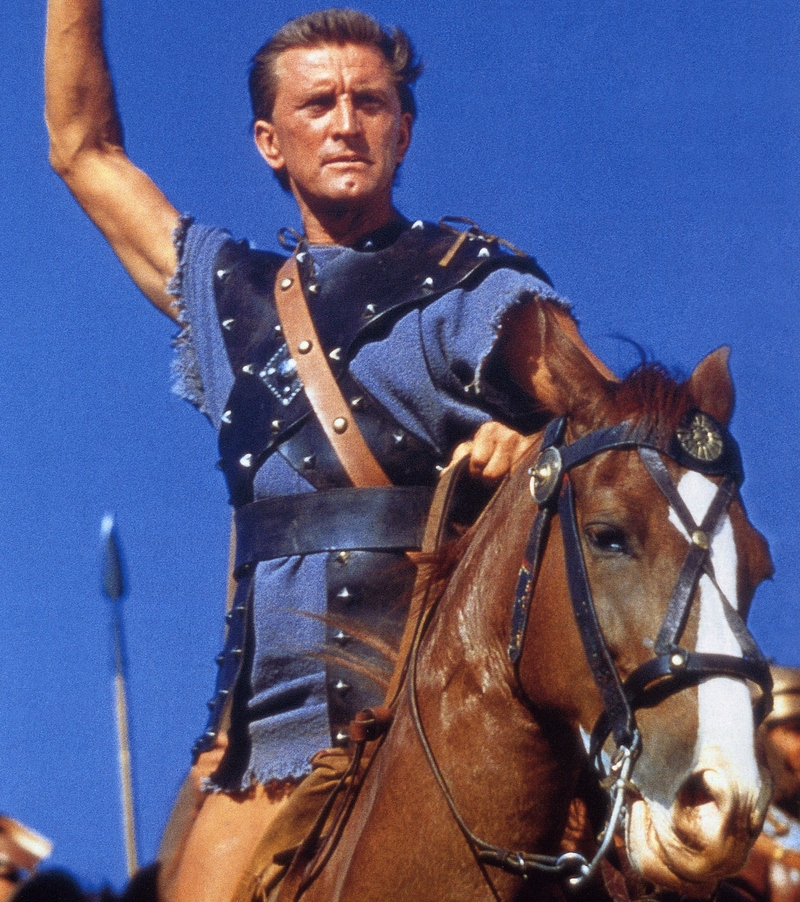
When the film was released, Douglas publicly credited the screenwriter, Dalton Trumbo, for its success. Trumbo had been black-balled in Hollywood, but “Spartacus” effectively ended the blacklist. Douglas considered breaking the blacklist one of his greatest accomplishments, even above his 85 other films.
He Retains Movie Rights for "One Flew Over the Cuckoo’s Nest"
In 1963, Kirk Douglas purchased the rights to stage a play adaptation of Ken Kesey's novel, “One Flew Over the Cuckoo's Nest,” and starred in the play alongside Joan Tetzel and many others. The play ran on Broadway for five months, receiving a mixed response from critics. Douglas managed to retain the movie rights for the story through an innovative loophole.
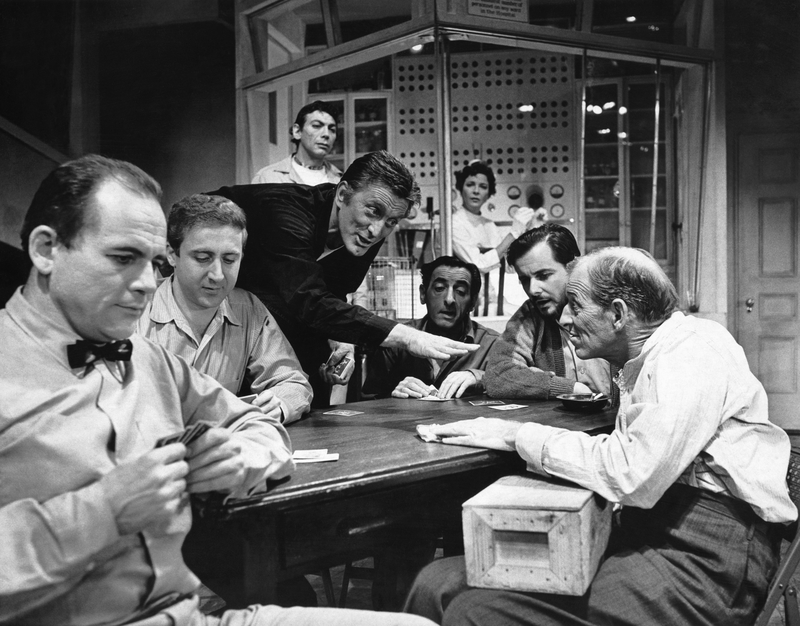
He was unsuccessful in bringing the story to the big screen - despite trying to find a producer for over a decade. He finally passed the rights to his son, Michael, who would make cinematic history with the movie years later.
From Films to Music and Everything in Between
Douglas joined forces with his long-time co-star, Burt Lancaster, for the final time in the crime comedy film, “Tough Guys” (1968). The movie was the culmination of a 40-year-long partnership between Douglas and Lancaster that left an unforgettable collaboration in the movie industry. Aside from his work in film, Douglas was also an active participant in the arts scene in New York City.
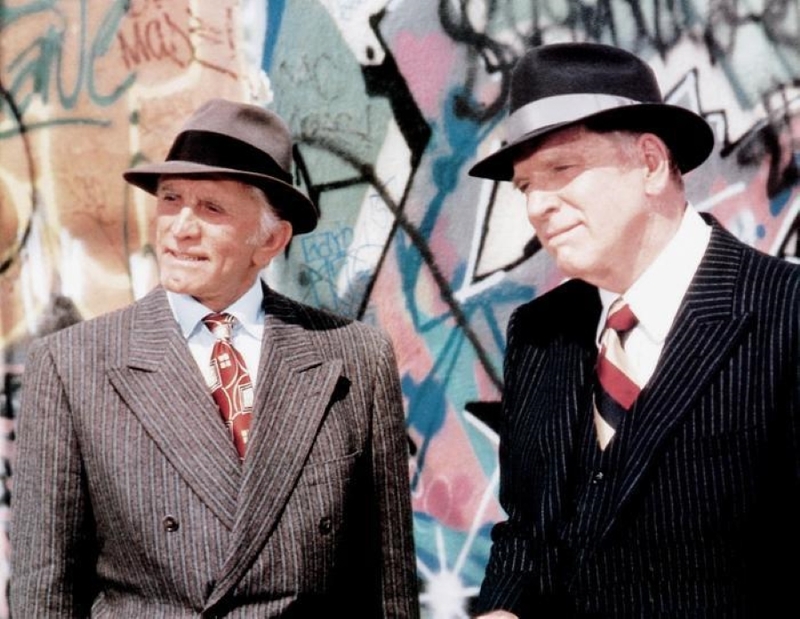
In the same year, he co-hosted a special tribute organized by the New York Philharmonic to celebrate the 100th anniversary of the Statue of Liberty alongside actress Angela Lansbury. The symphony, conducted by Zubin Mehta, was a grand celebration of the iconic monument.
He Receives the Presidential Medal of Freedom
One of the most defining moments of his career was in 1981 when Kirk Douglas received the Presidential Medal of Freedom - the highest civilian honor that can be bestowed upon an American, recognizing their exceptional contributions. The Presidential Medal of Freedom is a testament to the excellence and dedication of individuals and their significant impact on society.

The award ceremony took place on January 17, 1981, at the White House in Washington, D.C. President Jimmy Carter praised Douglas for his extraordinary achievements, recognizing his legacy as a prominent figure in American culture. Douglas said receiving the accolade was an unforgettable moment – one of the proudest he had ever felt as an actor.
He Stars in an Australian Classic
Kirk Douglas was unforgettable in the acclaimed Australian film, “The Man from Snowy River” (1982). In the film, he played not one but two characters - the tetchy farm owner Harrison and his wise and charming peg-legged brother, Spur. Harrison is an obstinate father who opposes the blossoming romance between his daughter and the film's protagonist, played by Tom Burlinson.

On the other hand, Spur is a sage character who hovers on the peripheries of the story, offering words of wisdom and charming women with his wit. His dual performance was delightful, with critics putting his acting on par with Lee Marvin's memorable portrayal in "Cat Ballou" (1965).
He Never Won an Oscar
Kirk Douglas received plenty of award nominations in his lifetime, but he never won an Oscar for a specific film role. Douglas's exceptional talent and versatility were evident, earning him three nominations for Best Actor in a Leading Role. He portrayed Vincent van Gogh in the 1956 film “Lust for Life,” Jonathan Shields in “The Bad and the Beautiful” in 1953, and was nominated for his portrayal of "Midge" Kelly in the 1950 film “Champion.”

Still, the coveted award always eluded him, with someone else taking the trophy home each time. Finally, in 1996, his remarkable career spanning over 50 years was recognized with an honorary Oscar. Oscar or not, his reputation as a Hollywood icon and legend is indisputable.
Crazy Fan Moments
Kirk Douglas had an enduring impact on the entertainment industry, with legions of fans determined to do anything to feel connected to him. In 2000, Douglas found himself in an unexpected situation - one only three other Hollywood legends - James Stewart, Gene Autry, and Gregory Peck – had experienced. Someone stole their stars on the Hollywood Walk of Fame!

The brazen theft created a stir - leaving fans wondering what had happened to the plaques. Reports finally emerged that a construction worker entrusted with securing the stars had stolen them instead. All's well that ends well - the stars are back in their rightful place on the Walk of Fame, much to the relief of fans and admirers of these iconic actors.
The Douglas Family Unite for a Film
In 2003, Michael and Joel Douglas produced “It Runs in the Family,” a film starring several members of the Douglas family, including Kirk, Michael, Michael's son Cameron, and his ex-wife Diana Dill, who played his wife. The movie received mixed reviews and, coming from the Douglas family, didn't keep up to expectations.

Kirk Douglas' last screen role was in the TV movie “Empire State Building Murders" (2008). In March 2009, at the impressive age of 92, Kirk performed an autobiographical one-man show titled “Before I Forget” at the Kirk Douglas Theatre in Culver City, California. The four performances later became a documentary that screened in January 2010.
Roles He Missed
Kirk Douglas, like many actors, had to make tough decisions when it came to choosing roles. In some cases, he turned down roles that later became iconic performances. Two of those roles were Kid Shelleen in the 1965 film “Cat Ballou” and Sgt. J.J. Sefton in the 1953 film “Stalag 17.” In “Cat Ballou,” Lee Marvin played Kid Shelleen, a drunken, washed-up gunslinger with a dual role as his evil twin. Marvin won the Academy Award for Best Actor for his performance.
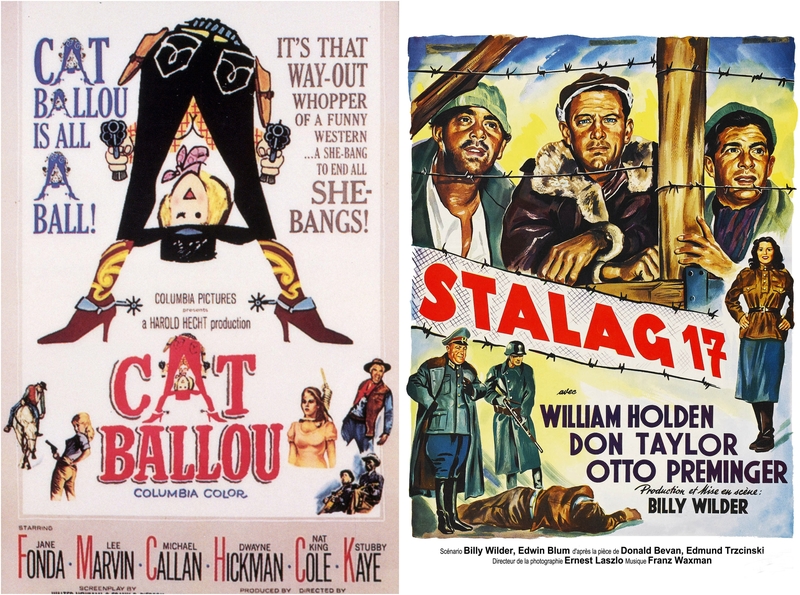
Similarly, in “Stalag 17,” William Holden played the role of Sgt. J.J. Sefton, a cynical prisoner-of-war suspected of being a traitor. Holden's performance earned him an Academy Award for Best Actor.
His Legendary Work Ethic
Kirk Douglas as a producer, had a reputation for being a relentless worker and expected the same level of energy and commitment from those who worked with him. He was direct and demanding in his dealings with others - his intense passion for film-making spilling over into all aspects of his life.
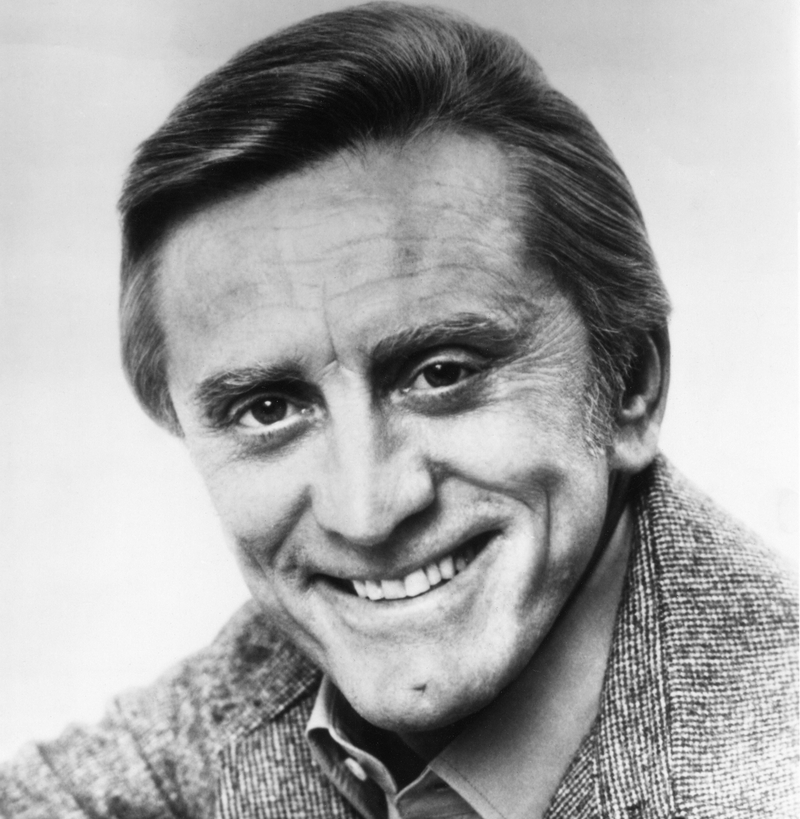
Douglas also emphasized the importance of entertainment in films over any messages, believing that films should not only make a statement but be thoroughly entertaining. As an actor, he approached every role with dedication, analyzing both his lines and the script to know whether the role was right for him. Douglas was willing to stand up to directors if he felt it was necessary to do so.
His Complicated Relationship With Judaism
In his autobiography, “The Ragman's Son,” Kirk Douglas revealed that he had once tried to forget that he was Jewish. Only later in his life and career did he begin to explore and embrace his Jewish identity, which became his life's overarching theme. In a 2000 interview, Douglas explained that he had parted ways with Judaism as a poor kid growing up in Amsterdam, N.Y.

His rift with the faith began when the community collected money to send him to a yeshiva to become a rabbi. Douglas had other plans. He found the prospect of being a rabbi terrifying, and it took immense will and effort to break free from that expectation. Douglas eventually discovered that being Jewish encompassed much more than being a rabbi.
Cast a Giant Shadow
In 1966 Kirk played the lead role in "Cast a Giant Shadow," which was based on true events that took place during the time the state of Israel was established. Douglas was proud of his work in this movie, and the role of Colonel Mickey Marcus helped him come closer to the strong values he believed in.
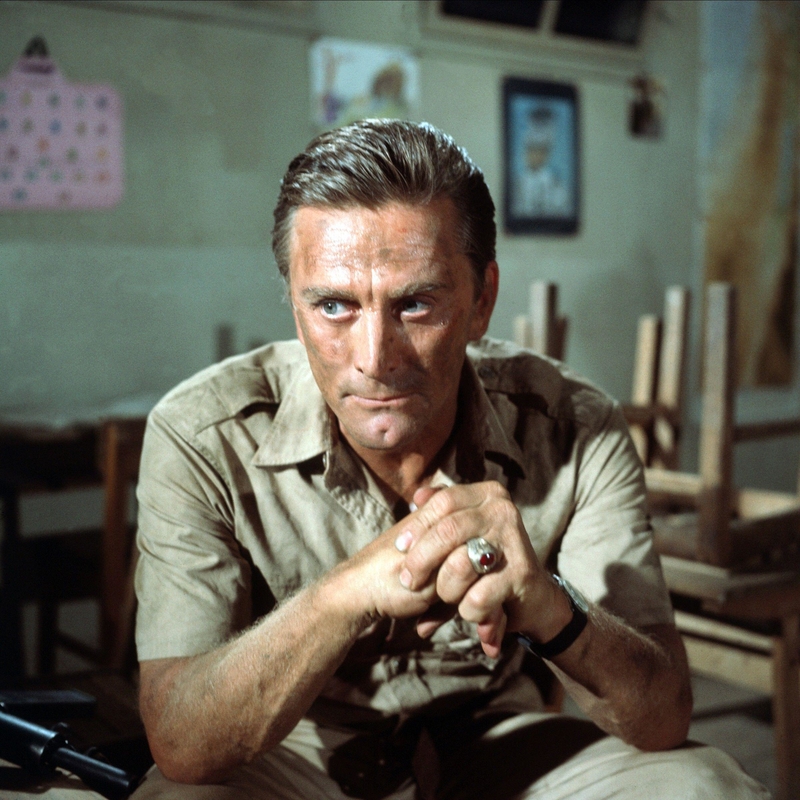
Douglas said "Cast a Giant Shadow" was one of the most satisfying projects he ever participated in and that it represented many things that were important to him. Over the years, Kirk Douglas and his wife were known donors to charitable organizations both in the U.S. and in Israel.
He Was Blogging Way Before it Became Cool
Kirk Douglas is the unlikely pioneer of celebrity blogging, often considered the oldest celebrity blogger in the world. He began his journey on the popular social media platform MySpace, where he shared his thoughts and opinions with fans worldwide. He continued blogging and even penned a letter for The Huffington Post about his opinion about the rise of Donald Trump.

Fans still remember his impassioned letter and appeal to the American public. Douglas proved he was beyond mere things like age, effortlessly embracing technology and social media to stay connected with his audience and share ideas with a new generation of readers.
Failing Health and Final Moments
Although Kirk Douglas had seemingly inexhaustible energy, his health gradually began failing him. In 1996, he suffered a severe stroke at age 79, which left him with impaired speech. Doctors initially believed that the damage was permanent, but he regained some of his speaking ability with regular speech therapy.

On February 5, 2020, Kirk Douglas passed away at age 103 at his home in Beverly Hills, surrounded by his loved ones. The family kept the cause of death private. His funeral was at the Westwood Village Memorial Park Cemetery, where he was buried in the same plot as his son, Eric. On April 29, 2021, Douglas' wife Anne died at age 102 and now rests close to her husband and their son.
Michael Douglas Is Born
Michael Douglas, one of Hollywood's most celebrated actors, was born in New Brunswick, New Jersey, as the first child of legendary Hollywood icons Kirk Douglas and Diana Dill. Kirk and Diana met while studying at the American Academy of Dramatic Arts. Michael has a younger brother named Joel Douglas and two half-brothers from his father's marriage to Anne Buydens namely, Peter and Eric Douglas.

In 1969, Douglas had his first breakthrough on television with a CBS Playhouse special called "The Experiment," where he was billed as "M.K. Douglas." This was the only time he used this billing name in his career.
Acting Didn’t Come Naturally to Him
Michael Douglas stumbled into acting almost by chance. After aimlessly drifting through three years of college, he was forced by the school to choose a major. Douglas, with no particular interest in acting, chose theater arts because of his parents' background in the industry. But his early performances were far from impressive, as even his father, Kirk Douglas, admitted.
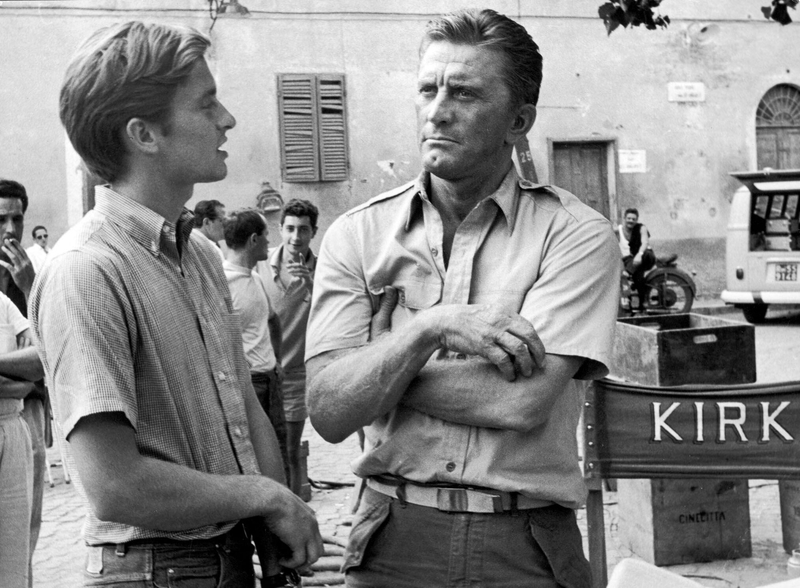
Attending nearly every show despite his busy schedule, his father was honest and told him that his acting was "awful." Michael acknowledged that his father was right and that he had a lot of room for improvement. He had a rough start, but Michael honed his craft and went on to have a successful career in acting.
The Story Behind K. Douglas
Michael Douglas had hoped to use his nickname "Mike" when he landed his first acting gig. He discovered that the name was already taken by another Mike Douglas, a popular TV talk show host of the time, leading to concerns about potential confusion among audiences. It explains why he went by "M.K. Douglas" in the 1969 CBS TV Playhouse special called "The Experiment.”

Some years later, a similar story played out when another actor with the birth name Michael Douglas had to change his name to avoid confusion with Michael Douglas - who had become a big star by then. This actor, Michael John Douglas, would become known as Michael Keaton in the entertainment industry.
Early Films
Michael Douglas started his film career in the late 1960s and early 1970s, acting in relatively unknown films like "Adam at 6 A.M.," “Summertree,” and "Hail, Hero!.” His portrayal in “Hail, Hero!” received a nomination for the Golden Globe Award for Most Promising Male Newcomer. In the early 1970s, Douglas landed a big role on the television series "The Streets of San Francisco," which aired from 1972 to 1976.

He appeared alongside actor Karl Malden in the popular police drama. Douglas had a close relationship with Malden, whom he considered a mentor and deeply admired and loved. The two remained close for a long time until Malden's passing on July 1, 2009.
His Childhood - The Untold Story
To the world, it may seem like Michael Douglas had an easy path to success in Hollywood, but the reality is quite different. His father was still trying to make a name for himself when Michael was growing up, and the atmosphere at home was fraught with tension and difficulty. Additionally, Kirk Douglas’ guilt over his failed first marriage and family dynamics made life unstable for a young Michael.

He still cherishes their relationship, but life was far from easy for the Douglas family. Luckily, he found a stable home life with a supportive stepfather, whose lifestyle was far removed from the glitz and glamour of Hollywood.
His Mega Film Adaptation of a Bestselling Play
In 1971, Kirk Douglas gave Michael the rights to "One Flew Over the Cuckoo's Nest." It was a momentous occasion for the budding producer who went on to produce the film adaptation of the same name with Saul Zaentz. Kirk Douglas had his eyes set on playing the lead character, McMurphy, having already starred in an earlier stage version. Michael thought his father was too old for the part.

He gave the role to a relatively unknown actor named Jack Nicholson instead - a bold decision that turned out to be the right choice. Nicholson won the Academy Award for Best Actor, while Michael won the Award for Best Picture for producing the film. Michael's passion for production led him to start his own production company, Big Stick Productions, a few years later.
When Real Life and Cinema Collide
In 1979, Michael Douglas produced and starred in a gripping drama called “The China Syndrome.” The film, starring Jane Fonda and Jack Lemmon, told the story of a nuclear power plant accident. In an eerie twist of fate, the movie came out just 12 days before the real-life tragedy at Three Mile Island.
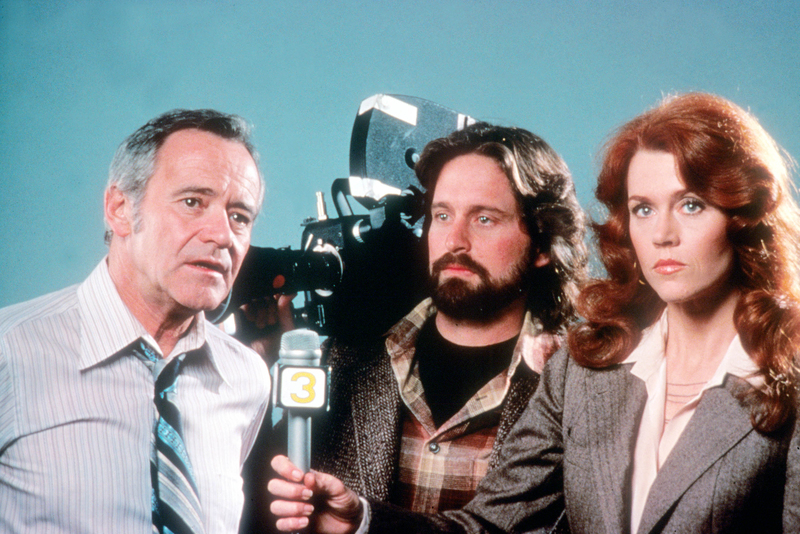
"The China Syndrome" is considered one of the most topical and intelligent Hollywood films of the 1970s. While the characters in the movie don't have much depth, the events depicted in the film are undeniably important. “The China Syndrome” was a powerful and impactful film that left a lasting impression on audiences.
Romancing the Stone
Michael Douglas became a household name after his appearance in the 1984 romantic adventure comedy “Romancing the Stone.” He produced and starred in the movie alongside Kathleen Turner and Danny DeVito. Director Robert Zemeckis also got his first big box-office hit with this film. "Romancing the Stone" was released in theaters on March 30, 1984, and it quickly became a smash hit.
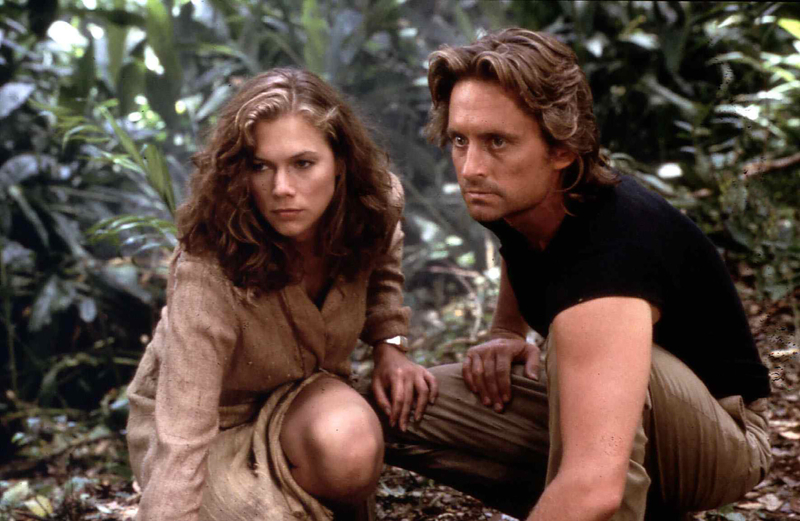
The film earned over $75 million, establishing Michael Douglas' status as a leading man. The actor displayed a comic bravado that was a departure from the intense roles that he was known for. “Romancing The Stone” was a true testament to his range as an actor.
He Is Unforgettable as Gordon Gekko
When Michael Douglas bagged the role of Gordon Gekko in “Wall Street” (1987), it was his most significant leading role to date - one that earned him an Academy Award. The film was a smashing hit and proved his detractors wrong. Director Oliver Stone shared how many people warned him that Douglas had no talent as an actor and was more focused on producing.

Stone soon realized the baselessness of some of these rumors. He discovered that Douglas was committed to his craft and gave it his all on set. Douglas took his role very seriously, even working with a speech instructor to improve his breathing control for the film's fast-paced dialogue - easier said than done since he was a chain smoker.
One of Two People to Win Oscars for Best Picture and Best Actor
His role as corporate raider Gordon Gekko in Wall Street won him an Academy Award for Best Actor, and it is easy to see why. We know this wasn't his first Oscar win. Before Douglas became a Hollywood leading man, he won his first Academy Award as a producer for “One Flew Over the Cuckoo’s Nest” in the 1970s.

The film won Best Picture, an award given to the producer. Douglas is one of only two people to have won both the Best Actor and Best Picture Oscars. The other is the legendary Sir Laurence Olivier, who achieved the feat in 1949 for his performance in "Hamlet."
He Took Time to Find His Bearings
Michael Douglas didn't feel truly in control of his acting career until the late 1980s when he starred in "Fatal Attraction" and "Wall Street." Before that, he struggled with nerves and couldn't say he enjoyed the acting process or felt like he was making a difference. He even likened his early camera presence to a patient sitting in a dentist's office. Practice made perfect – cliched but true.

Douglas became better at his craft through practice and hard work. He even got to play roles outside his repertoire. Douglas had primarily played heroic roles before getting the opportunity to play a more mischievous character in "Romancing the Stone," which he embraced as a chance to break away from his typical typecasting.
The Delightful War of the Roses
In "The War of the Roses" (1989), Michael Douglas and Kathleen Turner play a once happily married couple named the Roses. The couple has grown bitter and frustrated over the years, eventually deciding to get a divorce and start dividing their belongings. Things quickly spiral out of control when Oliver Rose (Douglas) demands more from his wife, arguing that he paid for their house and everything in it.

The dark comedy follows the hilarious and ridiculous saga of a divorcing couple who are both determined to stay in their house. "The War of the Roses" is one of the most underrated black comedies from the 1980s. Douglas and Turner were both brilliant in their roles. The film continues to stand out for its delightful absurdity and dark humor.
"Basic Instinct," a Risk That Paid Off
Michael Douglas had made a name for himself in the erotic thriller genre by the early 1990s, thanks in no small part to his iconic role in the widely-discussed film “Fatal Attraction.” Yet, when director Paul Verhoeven approached him to play the lead in his upcoming thriller “Basic Instinct,” Douglas had his reservations. He agreed to take on the role only if a big-name actress would star alongside him.
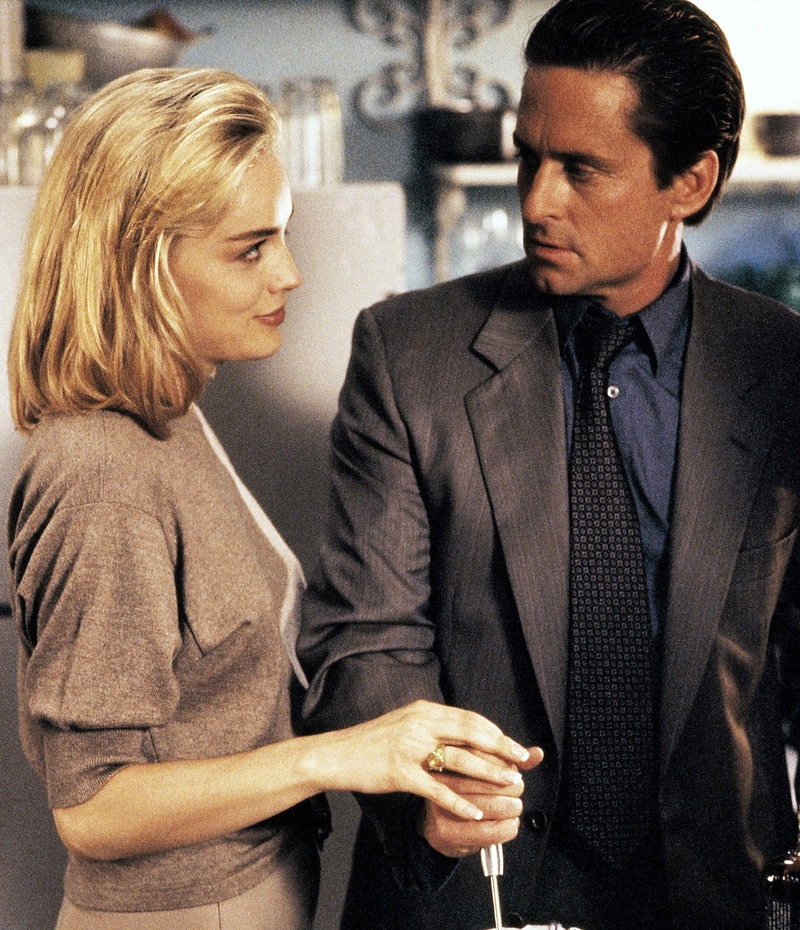
Douglas suggested names such as Julia Roberts and Kim Basinger for the controversial role - strong co-stars who could carry and share the risk. Since most A-list actors declined, the producers cast a relatively unknown Sharon Stone instead. The film became a massive hit and one of the biggest commercial successes of Douglas' career.
He Struggles With Addiction
In 1992, Michael Douglas sought help for substance and alcohol addiction, checking into rehab at the Sierra Tucson Centre in Arizona. It was the same year that “Basic Instinct” was released in theaters. His rehabilitation program lasted for 30 days, and Douglas has since been open about his struggles with addiction.

He recognized, in retrospect, that he had placed his career before his family, regretting not being there for them more. He admits that he used work to avoid confronting personal issues and wishes he had prioritized his family more. His eldest son, Cameron, has also struggled with addiction, which Michael feels some responsibility for.
Catherine Zeta-Jones Completely Floored Him
When Michael Douglas met Catherine Zeta-Jones for the first time in Deauville, France, in 1999, he refused to beat around the bush. According to Zeta-Jones herself, Douglas declared that he wanted to father her children – his first words to her! Some people might find this direct approach bold, while others could see it as cheesy or even borderline inappropriate.

The move clearly worked, as the couple began dating soon after and went on to get married the following year. Douglas and Zeta-Jones are still going strong, despite their 25-year age difference and vicious gossip that he was her “sugar daddy.”
The Critical and Commercial Success of Traffic
Michael Douglas' performance in the 2000 film “Traffic” was a standout moment in his career. He starred alongside Benicio del Toro and future wife Catherine Zeta-Jones, in the critically-acclaimed crime drama directed by Steven Soderbergh. The film tells the story of illegal trading from the perspective of multiple characters. Douglas' character, Robert Wakefield, is a respected judge from Ohio whose daughter struggles with addiction.

His performance was nothing short of impressive. "Traffic" received widespread praise from critics and audiences alike, with many hailing it as one of the best films of 2000. For Douglas, "Traffic" was another opportunity to showcase his talent and retain his status as one of Hollywood's most respected actors.
Wonder Boys Is a Smash Hit
In 2000, Michael Douglas had another career-defining moment with his role in the film “Wonder Boys.” Directed by Curtis Hanson, the film is based on a novel by Michael Chabon and tells the story of Grady Tripp, a professor, and novelist struggling with writer's block. Douglas brought depth and nuance to the character.
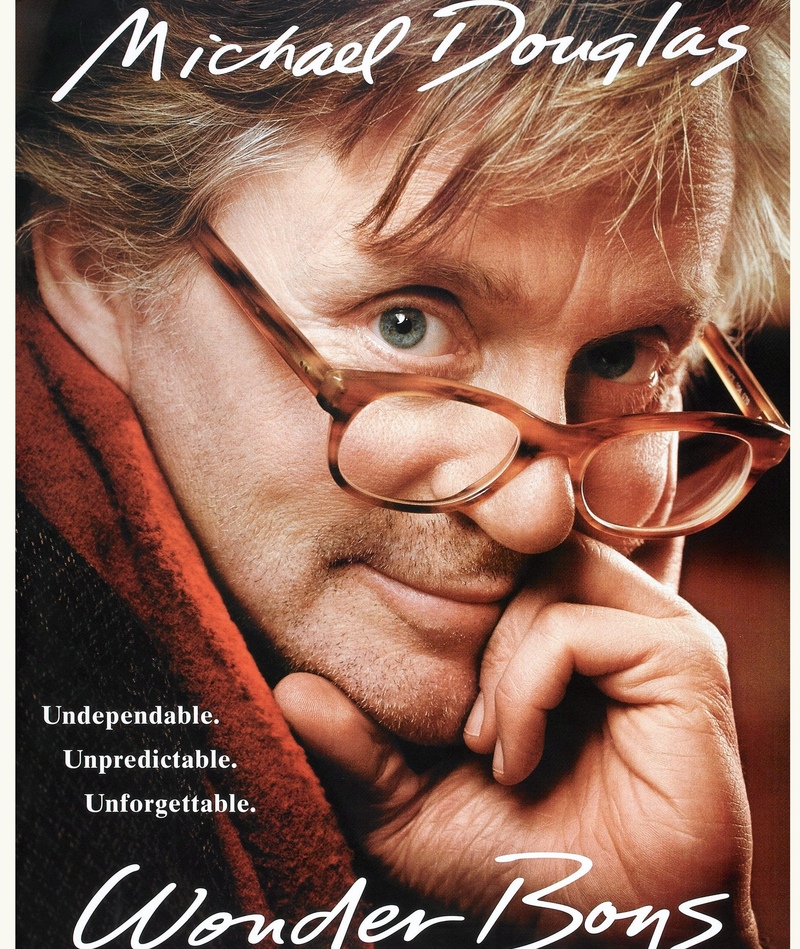
It was a challenging role, requiring him to convey a wide range of emotions, and he did so with ease. “Wonder Boys” was a critical success, receiving positive reviews for its sharp script, excellent performances, and direction. Douglas received nominations for the Golden Globe Award for Best Actor in a Drama and the BAFTA Award for Best Actor in a Leading Role.
As the Inimitable Liberace in Behind the Candelabra
Michael Douglas teamed up with Steven Soderbergh in 2013 for the film “Behind the Candelabra,” where he played the role of the flamboyant pianist Liberace alongside Matt Damon. Douglas managed to embody Liberace’s character so well that it went beyond mere imitation and became a touching tribute. Through his performance, Douglas highlighted Liberace's struggle with the conservative values of Middle America - values he could challenge but never escape.
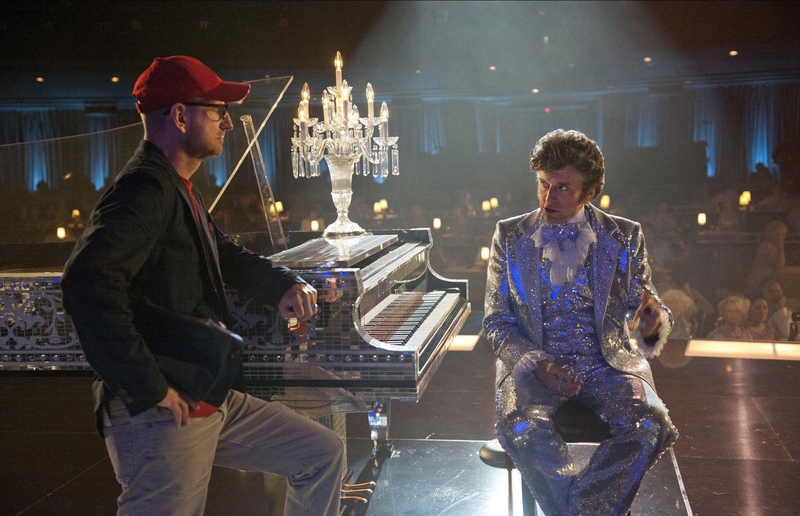
For the uninitiated, Liberace was a closeted gay who never came out during his lifetime. Critics praised his performance in the movie. Douglas won the Emmy Award for Outstanding Lead Actor at the 65th Primetime Emmy Awards. He also won the SAG and Golden Globe Awards for his portrayal.
MCU Calling
Michael Douglas portrayed Hank Pym in the Marvel superhero movies “Ant-Man” (2015), “Ant-Man and the Wasp (2018),” and “Avengers: Endgame” (2019). Directed by Peyton Reed and starring Paul Rudd, these movies have always centered around the character of Scott Lang and his daughter Cassie.
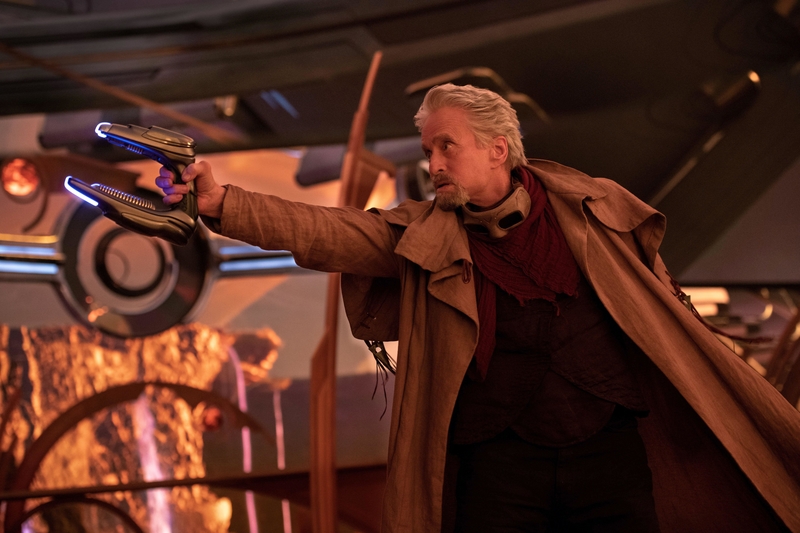
In “Ant-Man & the Wasp: Quantumania,” Douglas brought a new paternal energy to the Marvel Cinematic Universe (MCU), which was clever and innovative. The role was perfect for Douglas, adding depth to the storyline and a happier Hank Pym in the MCU. His portrayal of Hank Pym worked - a refreshing change that breathed new life into the franchise.
Why He Loves the Ant-Man Franchise
Michael Douglas has become an integral part of the Marvel Cinematic Universe. What is more delightful is how much he has embraced his role as the cantankerous rogue scientist Hank Pym in the "Ant-Man" movies. In a recent interview, Douglas revealed his enthusiasm for the green screen, which he had never used before. He found the idea of talking to an ant on his shoulder and the endless possibilities staggering. It felt like play more than work, he said.

Douglas particularly enjoys the "Ant-Man" franchise's open sense of humor, which he feels sets it apart from other Marvel movies. Plus, he was so impressed with the set design that he made an effort to meet the production designers to express his admiration.
His Conversion to Judaism
Michael Douglas, although not raised in the Jewish faith due to his non-Jewish mother, converted to Judaism later in life following his cancer diagnosis. He is today a Reform Jew, inspired by his father, Kirk Douglas, who also embraced his faith in his later years, and his son Dylan, a devout believer.

In 2015, the Genesis Prize Foundation, an organization that promotes Jewish culture, recognized and honored Douglas' commitment to his faith. The recognition stirred controversy among the Jewish community, who questioned why the prize went to Douglas - someone who converted late in life and had a non-Jewish wife, Catherine Zeta-Jones.
Michael Douglas on Netflix
In 2018, Michael Douglas teamed up with Alan Arkin for the hit series “The Kominsky Method,” where he played the role of Sandy Kominsky, a seasoned acting coach grappling with the challenges of aging in Hollywood. Douglas' standout performance earned him a Golden Globe Award. The story revolves around the relationship between Sandy and his millionaire agent friend, Norman Newlander, played brilliantly by Alan Arkin.
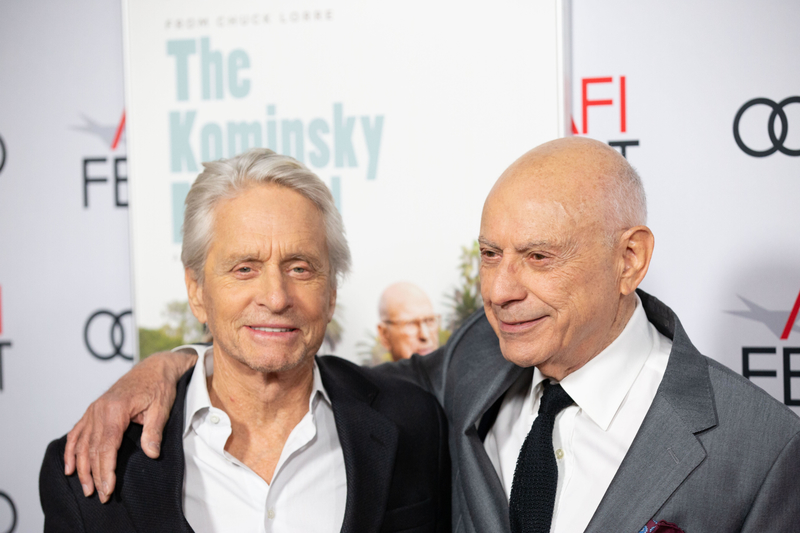
Together, they navigate the often-harsh realities of getting older. The show is an inside joke on Hollywood, poking fun at its obsession with aging (especially for women) – instead subverting the stereotype by portraying two men who are far from aging gracefully. The show - said to be Chuck Lorre's most personal creation to date - is a rare blend of irreverence, heart, and class.
Filmography and Acting Range
Critics have praised Michael Douglas for his ability to portray morally-flawed characters without losing the essential ethical qualities of a hero. Douglas also has a knack for playing the contemporary, white, middle-to-upper-class American male - angry with women due to real or perceived slights. The theme of male victimization is prominent in many of his films, including “Fatal Attraction,” “The War of the Roses,” “Basic Instinct,” and “Disclosure.”

Douglas is equally adept at playing powerful characters such as Gordon Gekko in the Wall Street franchise, the quintessential yuppie who believes greed is a good thing. In “Romancing the Stone” and “The Jewel of the Nile,” he played an idealistic soldier of fortune.
He Makes a Memorable Guest Appearance
In 2002, Michael Douglas made a guest appearance on the popular sitcom “Will & Grace” as a gay cop who becomes attracted to Will Truman, portrayed by Eric McCormack. The performance was so impressive that Douglas earned an Emmy Award nomination for Outstanding Guest Actor in a Comedy Show.

Debra Messing, who plays Grace, was amazed at how easily Douglas embodied his character. Entertainment Weekly even ranked his guest spot as the fourth most memorable appearance on the show. Reviewers and critics were particularly impressed with Douglas, who stole every scene thanks to his brilliant acting and commanding presence on screen.
The Joys of Acting and Producing
Michael Douglas considers himself primarily an actor, but he also enjoys producing because it involves more adult responsibilities and risks. He has shared how producing allows him to be more creative and learn the business side of things. The chameleon-like ability to adapt to different situations has served him well in various facets of life.

The actor believes the same quality helps him fit in different movie roles as long as he stays true to his values and remembers why he got involved in the first place. Douglas maintains that an impulsive and intuitive approach to filmmaking can lead to success, even when the going gets tough.
Cancer Diagnosis
On August 16, 2010, a representative for Michael Douglas announced that he had been diagnosed with throat cancer, later revealed to be tongue cancer. Douglas underwent chemotherapy and radiation treatment. He credits the public health system that discovered his cancer after numerous specialists failed to do so. The actor has since participated in fundraisers for the Montreal hospital where he received his diagnosis and the affiliated McGill University Health Centre.
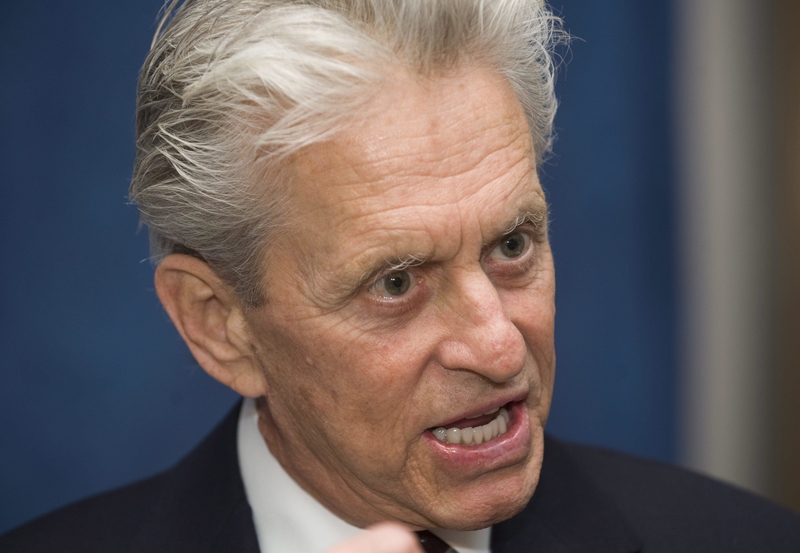
He attributed his cancer to stress, previous alcohol abuse, and years of heavy smoking. In January 2011, he announced that the tumor was gone, although he had lost 32 pounds due to the aggressive treatment. Douglas requires monthly screenings due to a high chance of recurrence.
A Passionate Advocate for Nuclear Disarmament
Michael Douglas is a man of many titles: a celebrated actor, a respected producer, and a United Nations Messenger of Peace. The latter, however, is perhaps the most honorable of all. Douglas has long been an advocate for both nuclear disarmament and the elimination of the weapons trade, tirelessly working to promote these causes through various initiatives and events.
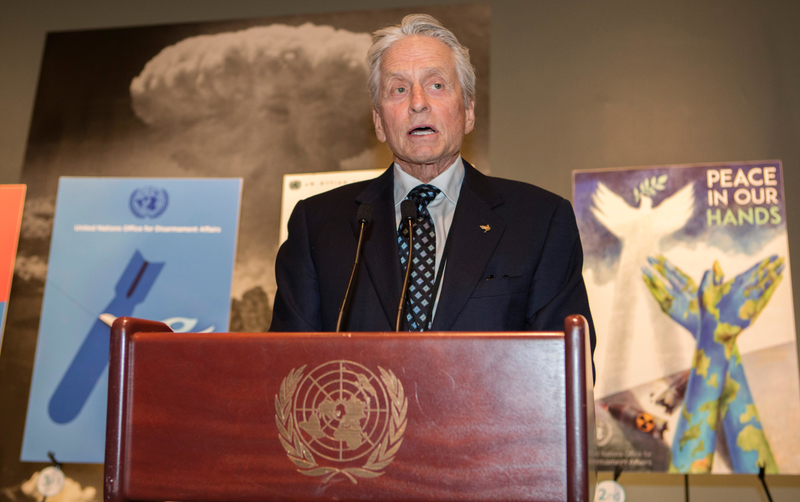
His passion for disarmament was ignited when he produced the film "The China Syndrome.” His position was further strengthened when he learned that his father's hometown had been affected by the Chornobyl disaster. Douglas is deeply committed to these issues, having served as the longest-serving Messenger of Peace.
He Stars in a Documentary
Michael Douglas appeared in the 2004 documentary "Tell Them Who You Are," which offered an insightful look into the life and work of acclaimed cinematographer Haskell Wexler. The documentary includes conversations with many other legends from the film industry. These included the likes of Jane Fonda, Julia Roberts, and Paul Newman, to name a few.
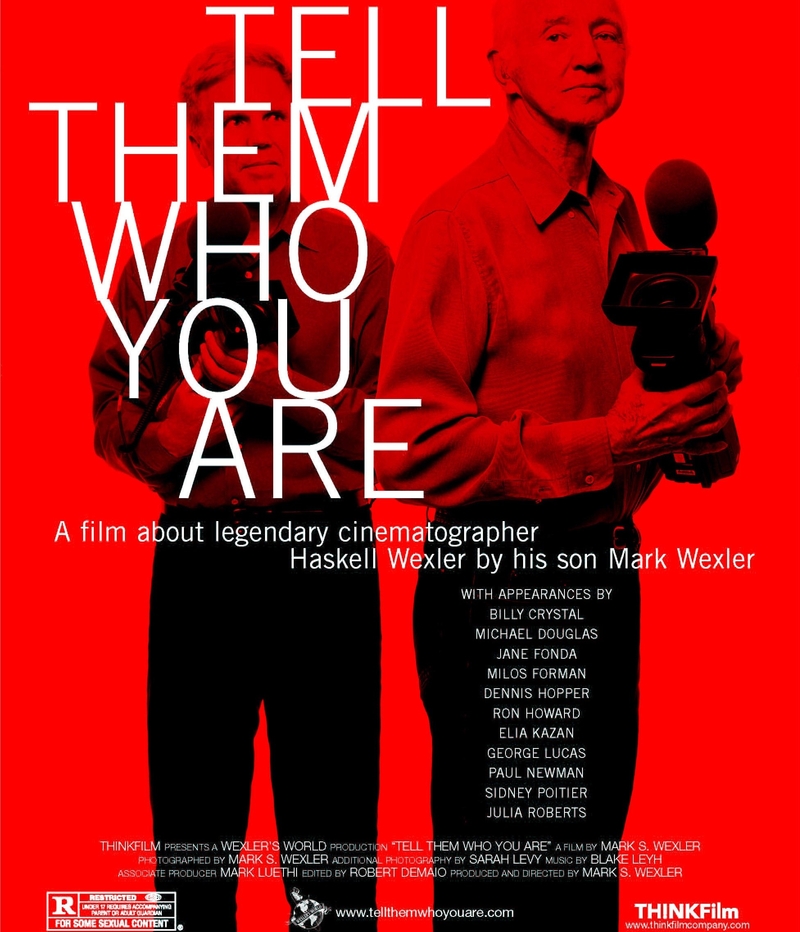
Directed by Wexler’s son, Mark Wexler, the film delves into the mind and methods of one of Hollywood's most influential cinematographers. Critics praised the documentary as one of the best made about filmmaking and appreciated its exploration of Wexler's work and the complicated relationship between fathers and sons.
His Enduring Friendship with Danny DeVito
Michael Douglas and Danny DeVito have been close friends for many years and are both successful Hollywood actors and filmmakers. Their friendship dates back to the 1960s when they shared an apartment as young men. DeVito fondly recalls Douglas doing the laundry, while Douglas remembers the "sock on the door" signal for privacy when either of them had female company. They remained friends and collaborated on several projects, including the 1984 hit film “Romancing the Stone,” alongside Kathleen Turner.
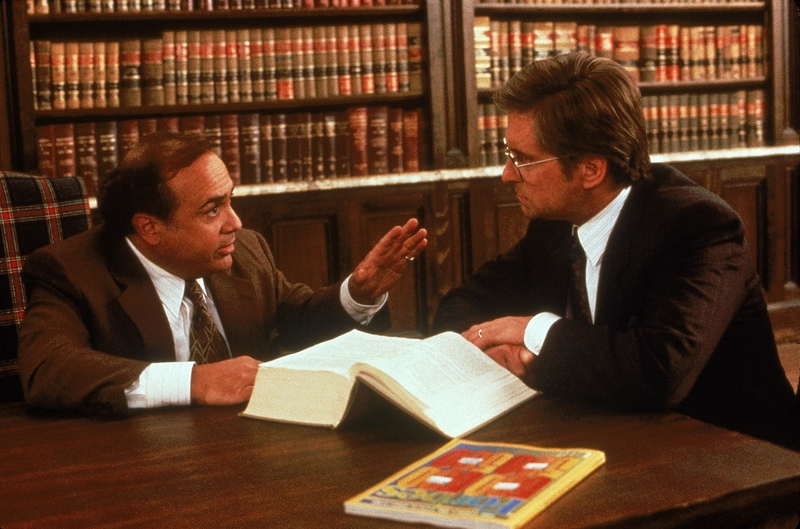
The success of the movie propelled Douglas to Hollywood's A-list after several lower-profile roles. DeVito and Douglas reunited for “The Jewel of the Nile” (1985) and the 1989 black comedy, “The War of the Roses,” which DeVito also directed. The actors continue to support each other both on and off-screen.
He’s Not a Gunslinger in Real Life
Michael Douglas has played several roles involving guns throughout his career. In real life, he is a vocal advocate for stricter gun control laws in the United States. Douglas was distraught by the tragic death of rock legend John Lennon, which occurred just a few blocks from where he was in New York City in 1980. The actor has stayed committed to the cause ever since.

He explained how the tragedy left a profound and lasting impression on him, motivating him to use his platform to push for small-arms control. His unwavering commitment to gun control stems from a genuine concern for the safety and well-being of Americans.
Joel Douglas, The Man Behind The Camera
Born on January 23, 1947, Joel Andrew Douglas is the second son of Kirk Douglas and Diana Douglas. While his father and older brother pursued careers in acting, Joel charted a different course and focused on producing films. During the 1970s and 1980s, Joel produced several films, many of which revolved around his family. He co-produced two blockbuster hits, “The Jewel of the Nile” and “Romancing the Stone,” which starred his brother, Michael Douglas, and Kathleen Turner.

Joel's work in the film industry has earned him immense acclaim. He is known for his unique perspective on film production. Joel may not have followed in his family's footsteps as an actor, but he is an influential figure in his own right.
He Produces Commercials Too
In addition to producing films, Joel Douglas has worked on various projects in the entertainment industry. He served as an assistant director on the classic film, “One Flew Over the Cuckoo's Nest,” and was an associate producer on the 2003 film “It Runs in the Family.” The film brought the who’s-who of the Douglas family together - Kirk Douglas, Michael Douglas, and Michael's son, Cameron.

In the 1970s and 1980s, Joel worked as an executive for Blanc Communications Corporation, a media company founded by Mel Blanc and Noel Blanc, where he developed and produced commercials. From classic films to modern blockbusters, Joel has worked on several exciting projects.
Peter Douglas - It Runs in the Family
Peter Vincent Douglas is an accomplished producer, actor, and photographer. He was born on November 23, 1955, the third son of Kirk Douglas and his second wife, German-American producer Anne Buydens. Peter's middle name was a tribute to Vincent van Gogh, whose father was portrayed in the film "Lust for Life" when Peter was born in Europe.

Kirk Douglas later named his new music publishing company, Peter Vincent Music Corporation, after his son in 1958. In turn, Peter named his own independent film production company, Vincent Pictures. Peter made an early appearance on the television program "This Is Your Life" in 1958, where the show honored his father's life and career.
His Passion for Photography
During his early days in the film industry, Peter Douglas had close ties to his father's production company, Bryna Productions. As a youngster, he had small, uncredited roles in his father's movies, “The Vikings” and “Stranger When We Meet.” He attended a military academy in Southern California for high school before studying photography at the Los Angeles Art Center in the early 1970s.

At 17, he was hired by his father to be the still photographer for the film “Scalawag,” which was being produced by Bryna Company on location in Yugoslavia. His father directed and starred in the film, while his mother was a co-producer. Peter’s younger brother, Eric, served as the producer's assistant, and even the family dog, Shaft, had a part in the movie.
His Work Features in High-End Publications
After a brief stint at the University of California, Santa Barbara, Peter Douglas left to pursue his passions in photography and the film industry. He quickly made a name for himself in the photography world, capturing candid moments of celebrities like his brother Michael and Olympic swimmer Mark Spitz. In 1974, Douglas founded his own photography service company, Bryna International, which quickly garnered attention from major publications like Cosmopolitan and advertising agencies.
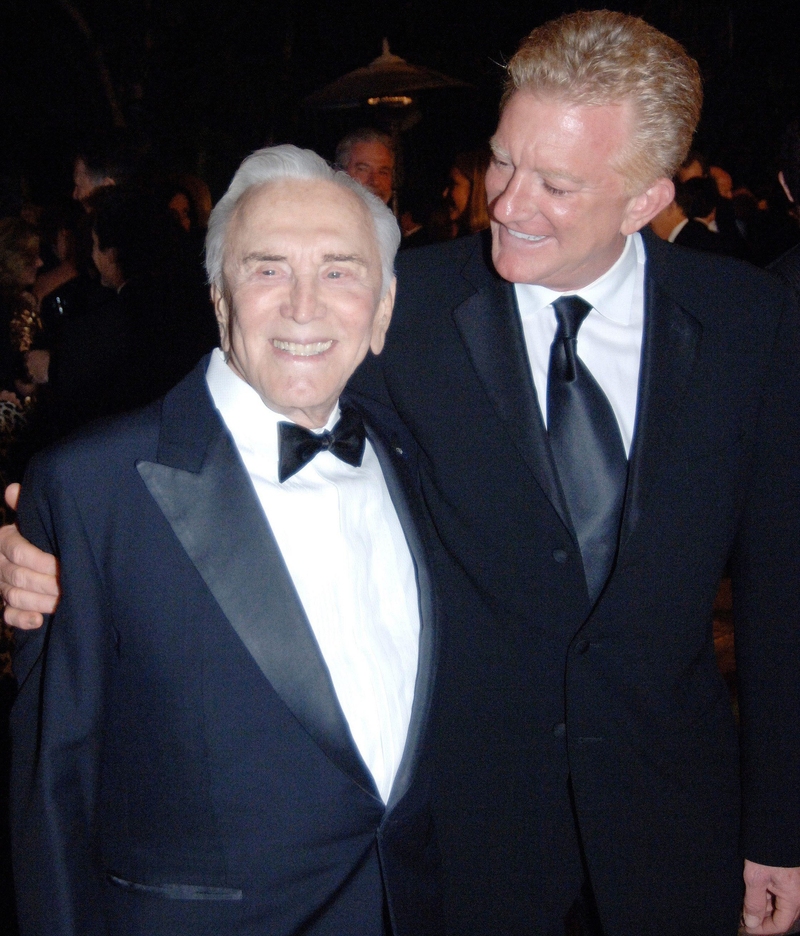
He also landed a gig photographing Frank Sinatra cooking a special Italian dinner for his parent's anniversary. His work was widely distributed in various publications, allowing him to establish himself as a sought-after photographer in Hollywood.
An Emmy Winning Producer
Peter Douglas has a successful career in the entertainment industry, producing both television and film projects. He won an Emmy Award for Outstanding Drama or Comedy Special for his work on “Inherit the Wind” in 1988 and was also Emmy-nominated for his production of “Amos” in 1984.
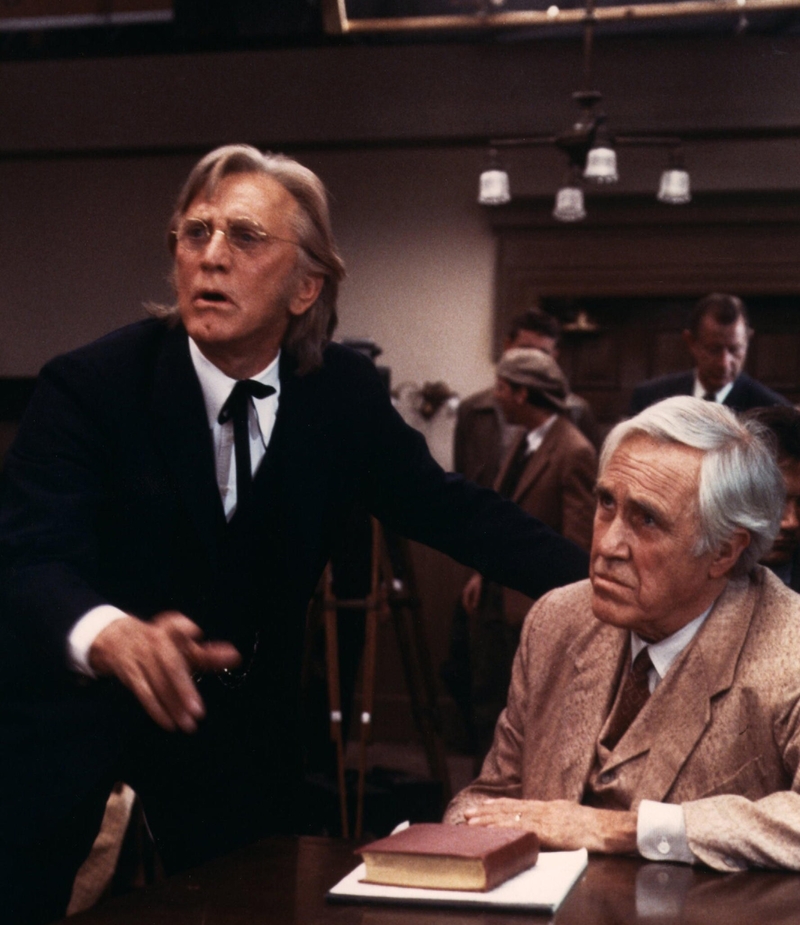
Among his film credits are “The Final Countdown” (1980), a science-fiction time-travel classic starring his father, and the film adaptation of Ray Bradbury's classic novel, “Something Wicked This Way Comes” (1983), which won the Saturn Award for Best Fantasy Film. Douglas also produced "Fletch" (1985), starring Chevy Chase, as well as its sequel "Fletch Lives" (1989).
Other Projects
Peter Douglas wrote, directed, and produced his own independent film, “A Tiger's Tale,” in 1988, which starred Ann-Margret. He was also the executive producer of several successful films, including “Whip It” (2009), starring Drew Barrymore and Elliot Page, and the HBO Drama thriller “The Enemy Within,” which featured Forest Whitaker and Jason Robards.
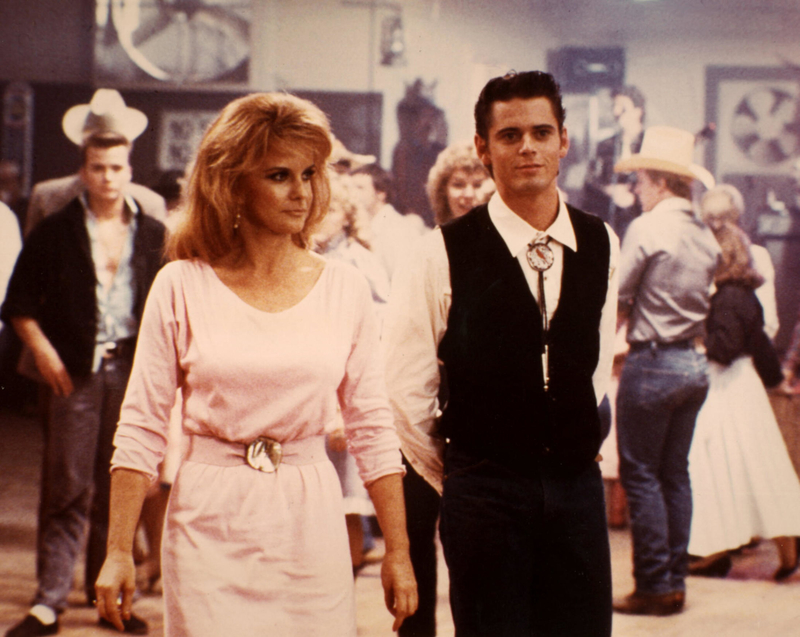
Despite being part of a Hollywood dynasty, Peter has managed to make his mark in the industry by following his own path and not relying on the Douglas family legacy. He is a talented photographer, director, and producer in his own right, even while following in his father’s footsteps.
Dylan Douglas - The Apple Doesn’t Fall Too Far
Dylan Michael Douglas is the son of Hollywood power couple Michael Douglas and Catherine Zeta-Jones. Like his father and grandfather before him, Dylan loved acting from a young age. His parents took him to watch musicals and stage plays, giving him early exposure to the nuances of the art. He and his sister attended acting workshops every summer, honing their skills and passion for the craft.

As Dylan grew older, he began participating in his school's theatrical productions, applying what he had learned. The actor might be the offspring of Hollywood royalty, but he has remained committed to finding his own way in the industry and building a successful career on his merit.
Acting Debut
Dylan Douglas has been making waves in the acting industry since his debut in 2009 with the television series, “Formula 1: BBC Sport.” Although his role in the show was brief, Dylan's performance left a lasting impression. A die-hard Formula One fan, Dylan was drawn to the project for his love of the sport. He has been spotted attending various 'Formula One' events with his father and sister, enthralled by the electrifying atmosphere of the racing world.

In 2011, Dylan embarked on a new challenge, venturing into voice acting for the first time. He lent his voice to the character 'Russell' in the beloved animated television series, “Phineas and Ferb,” impressing audiences with his natural talent and versatility.
Cameron Douglas’ Feature Films
Cameron Douglas is the only son of Michael Douglas and his ex-wife, Diandra Luker. Like his father, Douglas has made his mark on the silver screen, having appeared in four feature films to date. His filmography includes “Mr. Nice Guy' (1997), “It Runs in the Family" (2003), “Adam & Eve” (2005), and “Loaded” (2008).
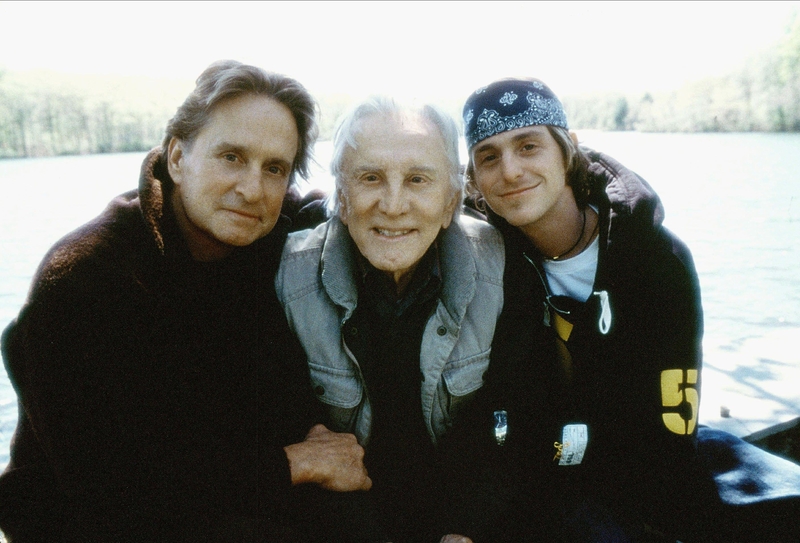
In "It Runs in the Family," the actor had the rare opportunity to share the screen with his father, Michael Douglas, his legendary grandfather, Kirk Douglas, and his grandmother, Diana Dill. Their on-screen chemistry was palpable, and it was a special moment for the family to come together in this way.
His Highly Publicized Addiction Struggles
Cameron’s personal struggles have made more headlines than his fledgling acting career. He has faced charges on at least three separate occasions. In 1999, he was caught with illegal substances. The cops arrested and charged him with misdemeanor possession of a controlled substance. In 2007, he faced more serious charges when more illegal medication was found in his car.

On July 28, 2009, Cameron was arrested by the DEA. He was charged with intent to distribute, a much more serious offense, due to the large quantities of medication he had in his possession. This was not going to be the last time Cameron would find himself in police custody.
A Prison Sentence and Rehabilitation
Cameron’s legal troubles culminated in a significant sentence on April 20, 2010. He was found guilty of possessing large quantities of illegal substances. He received a five-year prison sentence - a stark reminder of the consequences of his actions. During this difficult period, his father, Michael Douglas, took responsibility for his son's struggles, acknowledging that he had not been a perfect parent.

Still, he also recognized that his son's situation could have been much worse without the authorities intervening. Michael hoped the prison sentence would allow Cameron to turn his life around. Cameron was released early from prison on August 1, 2016, and transferred to a halfway house in New York City. He continues to take slow but steady steps toward rebuilding his life.